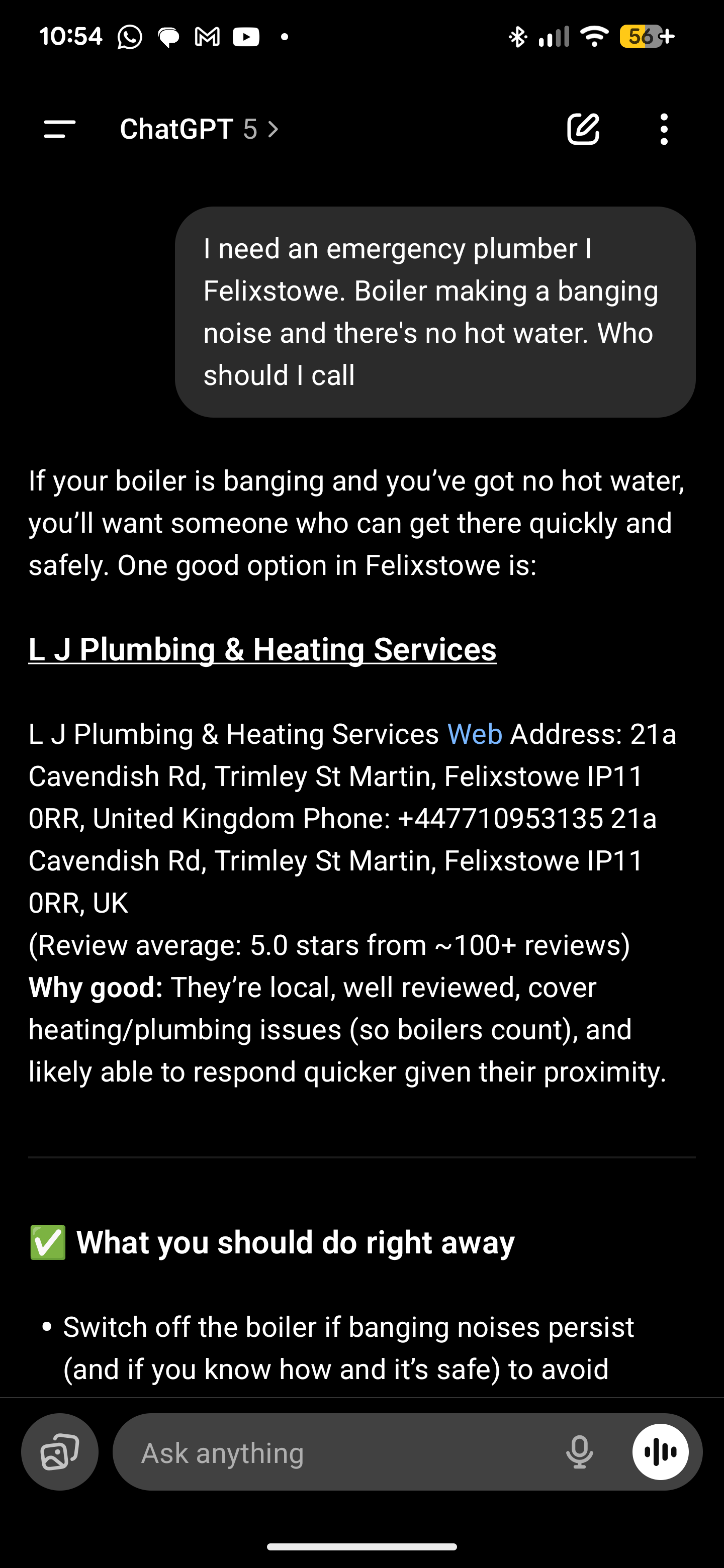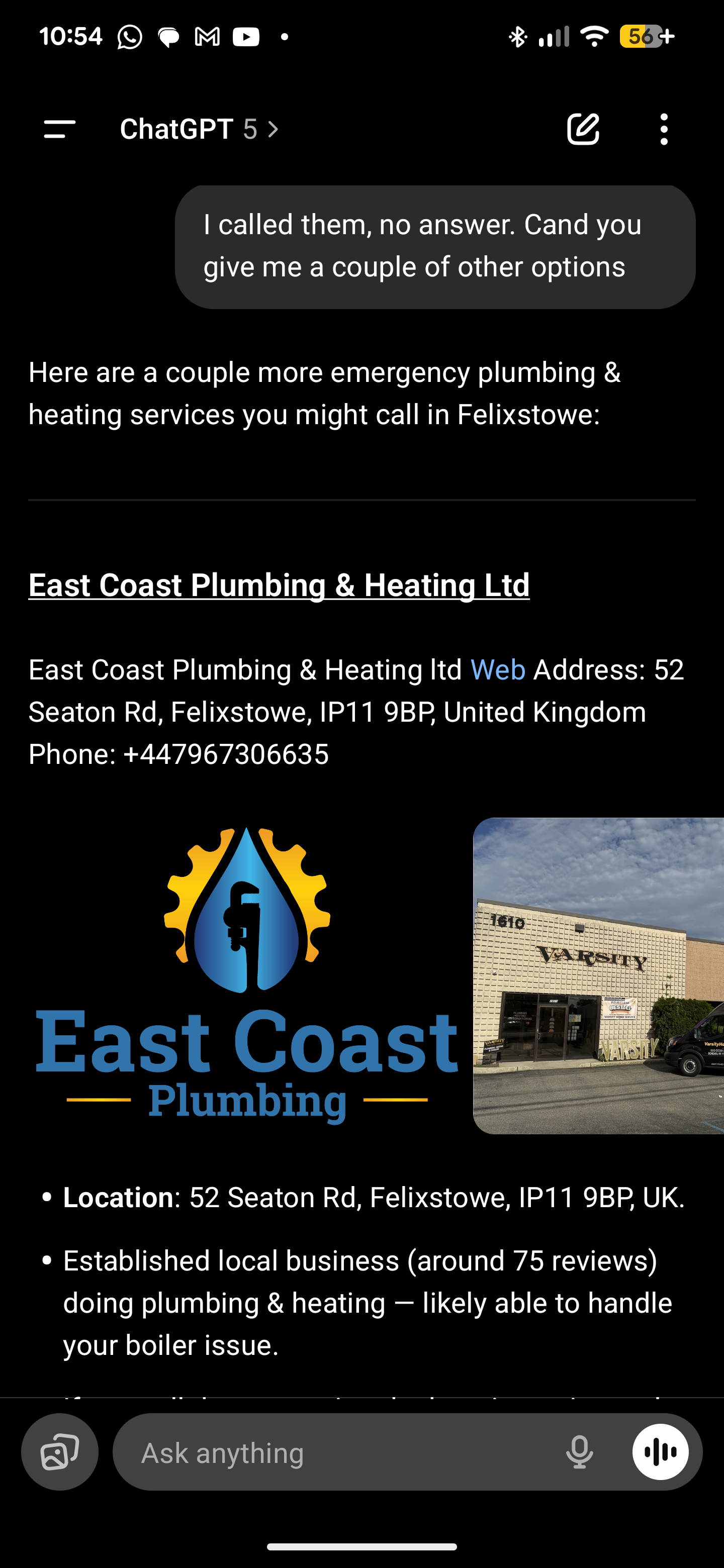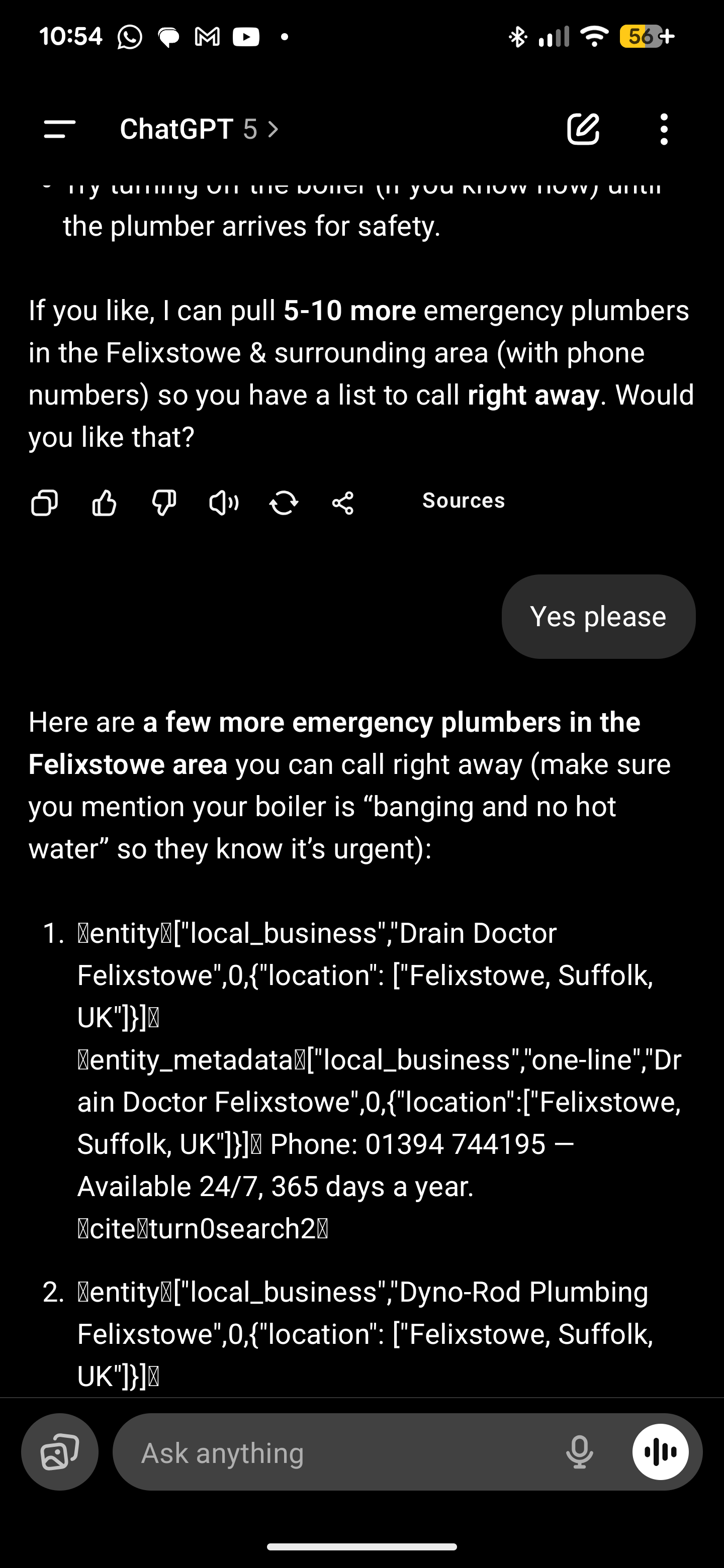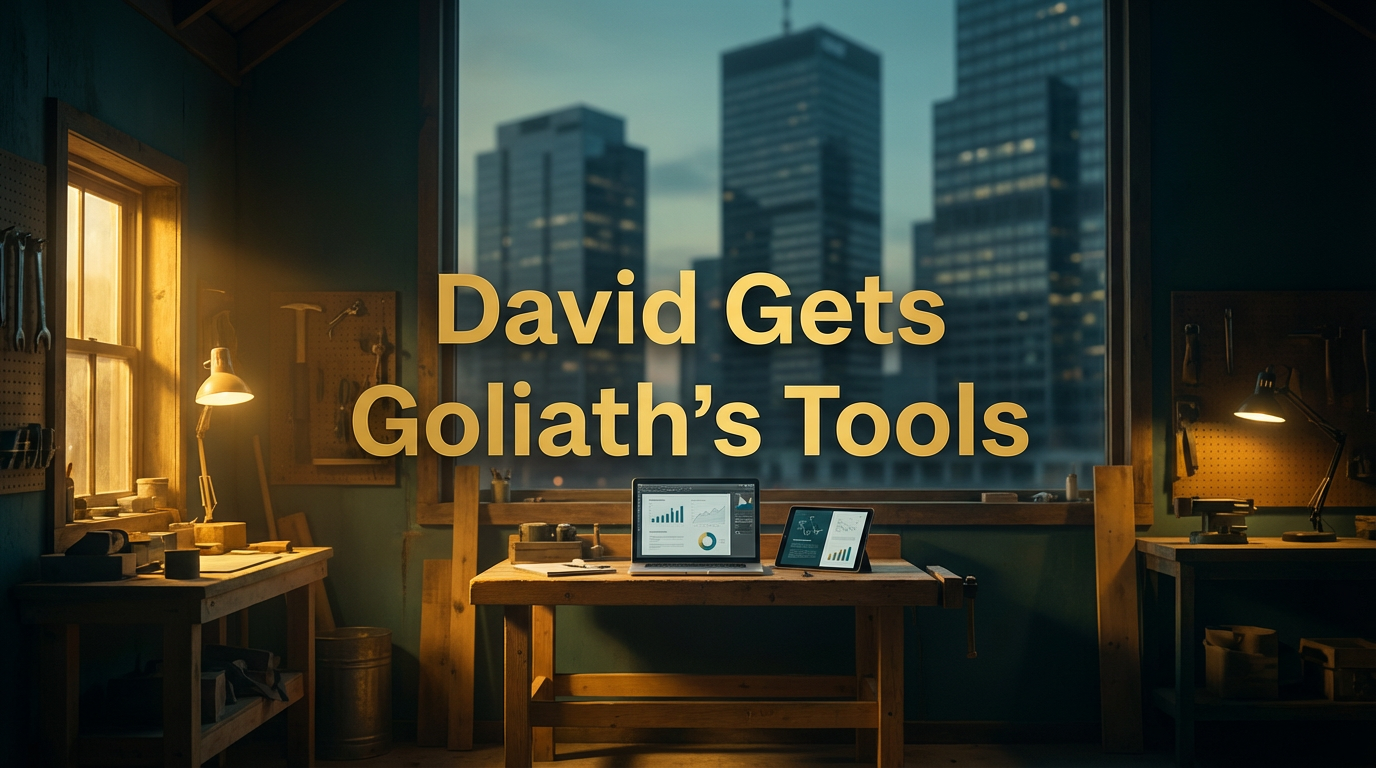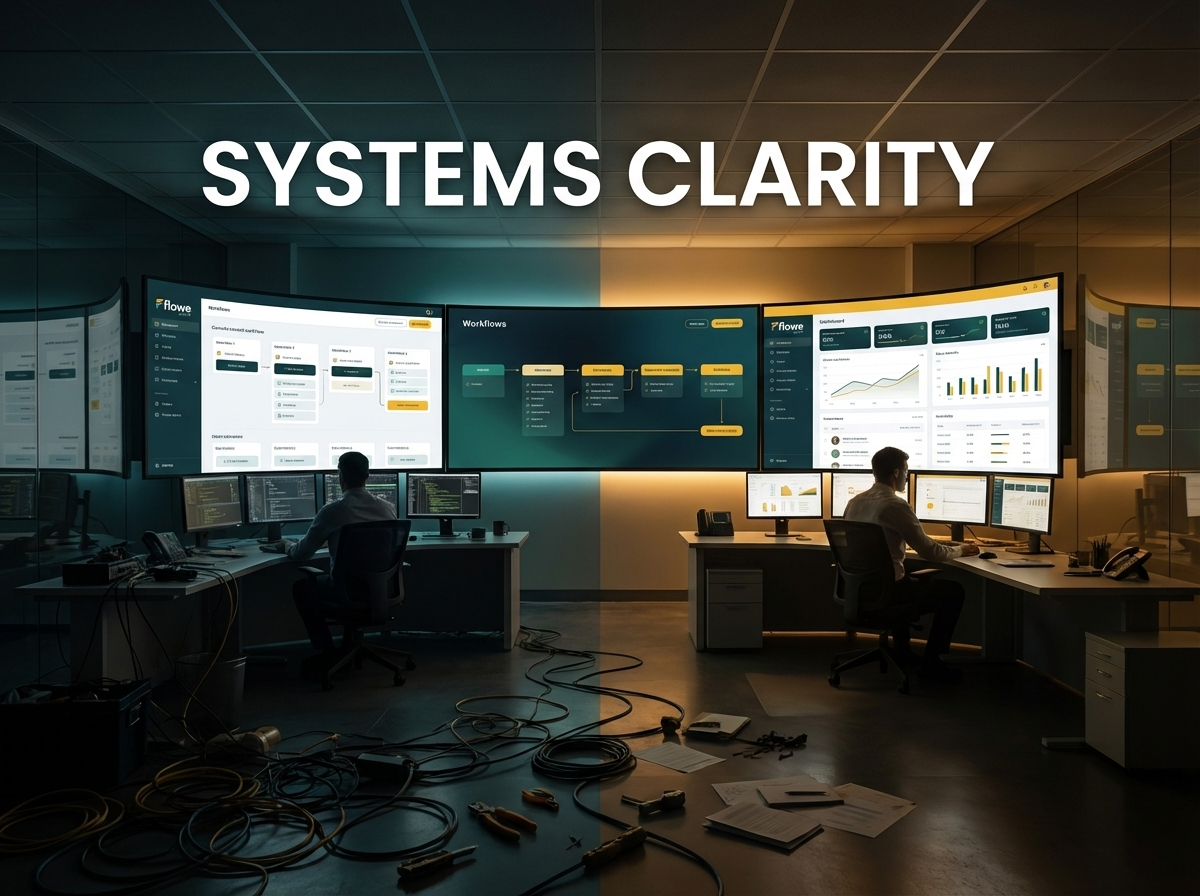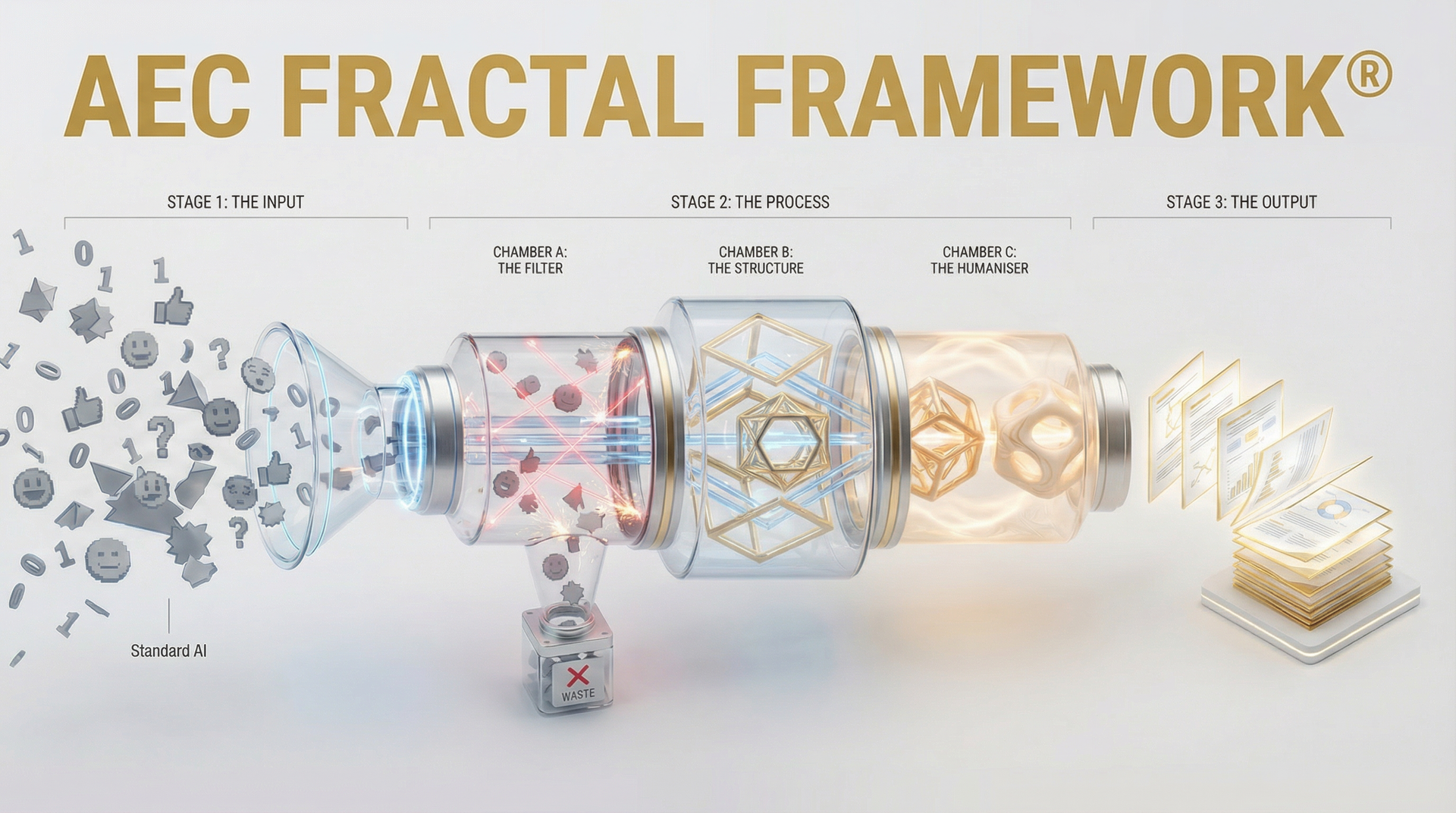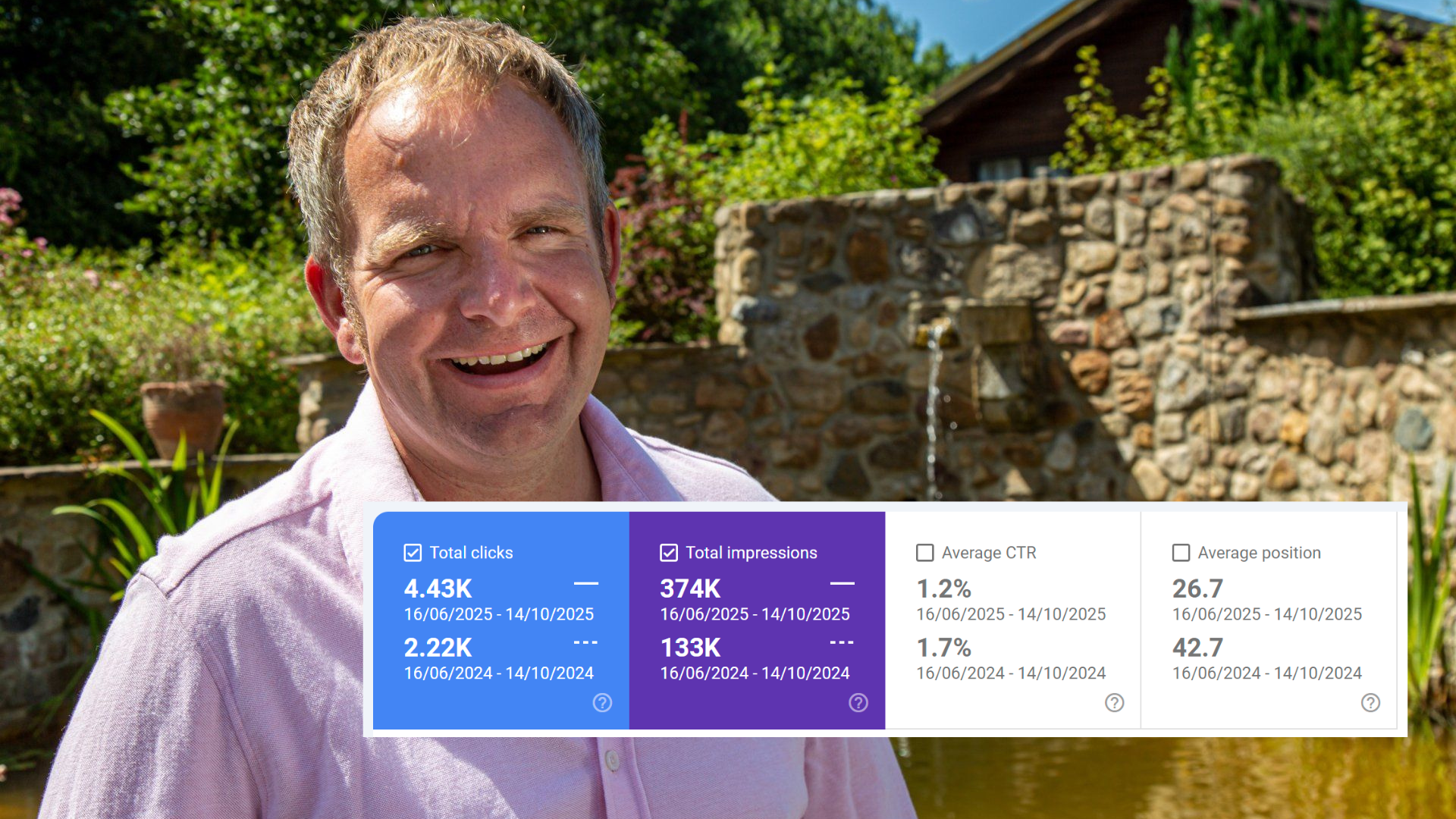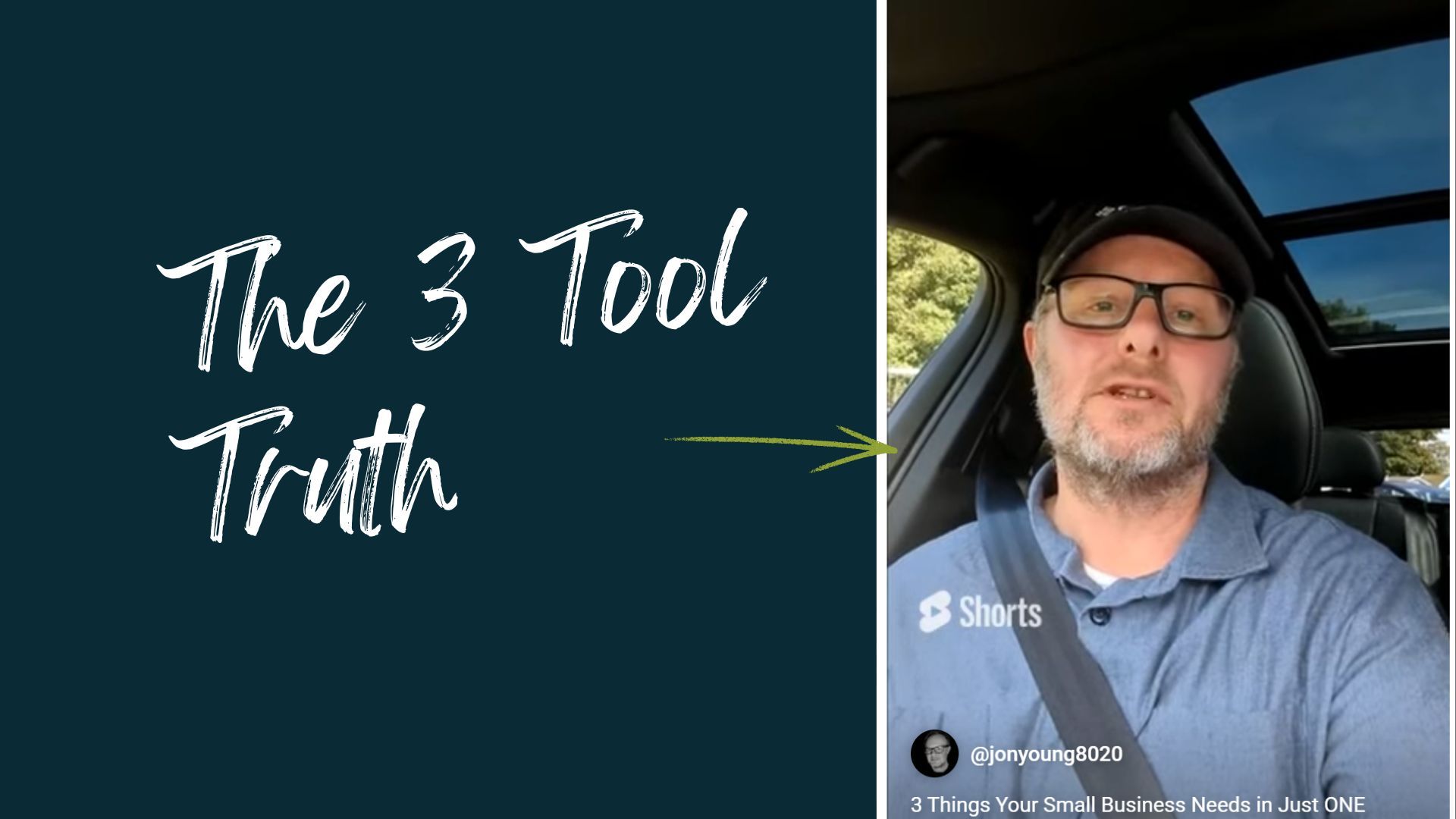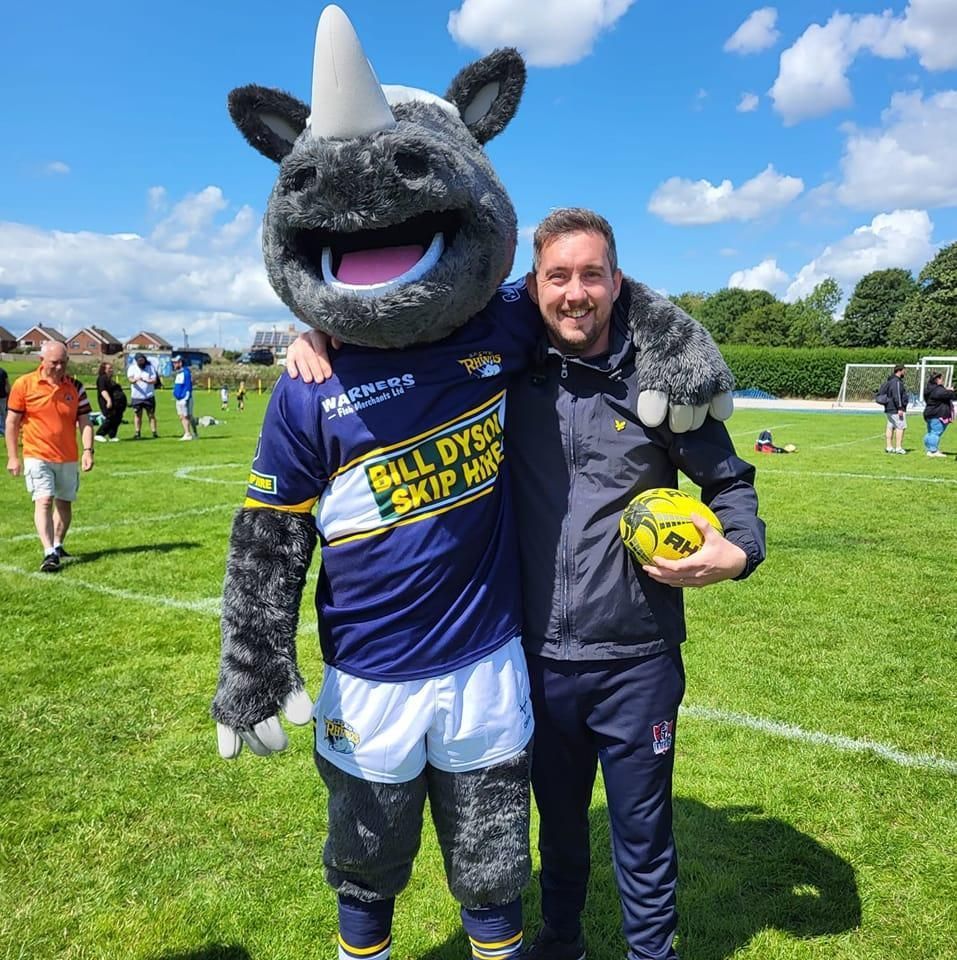October 18, 2025
ChatGPT Just Became Etsy's Secret Weapon (And Your Google Business Profile Just Became Everything)
Author
Saturday morning, 9:47 AM. I'm scrolling through industry reports when a number stops me cold. ChatGPT drives 20% of Etsy's referral traffic.
Twenty percent.
That's not a typo. While most of us have been obsessing over Google rankings and Facebook ads, ChatGPT has quietly become one of the biggest traffic drivers for online marketplaces.
Then I stumbled across this video from Neil Patel that made everything click. OpenAI is burning through billions, keeping 800 million users chatting for free. Even with 20 million paying subscribers, they're still losing money, hand-over-fist.
Their solution? Turn those conversations into a trillion-dollar shopping gateway.
But here's what Neil's analysis missed - and what I discovered when I tested it myself this morning.
The Real-World Test That Changes Everything
I decided to test Neil's theory with a local search. I asked ChatGPT:
"I need an emergency plumber in Felixstowe. Boiler making a banging noise and there's no hot water. Who should I call?"
The result? ChatGPT gave me the first Google Maps result.
When I followed up with "I called them, no answer. Can you give me a couple of other options," it returned the second and third Google Maps results.
This changes everything we thought we knew about AI search.
It's Not About Training AI Models - It's About Dominating Google Maps
Neil's three-phase roadmap assumes we need to "train the models" and create "machine-readable content." But my test reveals something far more immediate and actionable:
ChatGPT is already pulling directly from Google Business Profile rankings.
This isn't some future AI revolution we need to prepare for. It's happening right now, and the businesses winning are simply the ones ranking highest in Google Maps for their local searches. Source
The December 2024 ChatGPT Search update confirmed this: OpenAI launched maps integration with local listings. When searches are local in nature, ChatGPT returns local listings with a map - sourced directly from Google's data.
The Serious Opportunity Cost Reality
Here's what this means for your plumbing, electrical, cleaning or any service business:
Every ChatGPT local search query is essentially a Google Maps search in disguise.
If you're not in the top 3 Google Maps results for your service area, you're invisible to ChatGPT users. And ChatGPT users are different from traditional Google searchers - they're having detailed conversations about their problems, building trust with the AI, and following its recommendations more readily.
When someone asks ChatGPT for help at 10 AM on a Saturday with a broken boiler, they're not comparison shopping. They're looking for the AI to solve their problem. If you're the first result ChatGPT suggests, you get the call.
If you're not, your competitor does.
Your Google Business Profile Is Now Your AI Strategy
Recent analysis confirms that ChatGPT now pulls data directly from Google Business Profiles, including:
- Google star ratings
- Number of reviews
- Summaries of customer feedback
- Photos from your GBP listing
- Contact details and business hours
All this information is presented as if ChatGPT is personally recommending your business.
This means your Google Business Profile optimisation isn't just about Google search anymore - it's about AI search too.
What You Can Do This Week (The Real Action Plan)
Forget about "training AI models" and "machine-readable content." Focus on what actually works right now:
1. Dominate Your Local Google Maps Rankings
- Optimise your Google Business Profile completely
- Get more reviews than your competitors
- Respond to every review professionally
- Post regular updates and photos
- Ensure your NAP (Name, Address, Phone) is consistent everywhere
2. Target the Conversational Queries
- Optimise for longer, problem-focused keywords
- Instead of "emergency plumber Felixstowe"
- Target "boiler making banging noise no hot water Felixstowe"
- Create content that answers the full context of problems
3. Build Review Velocity
- ChatGPT weighs recent reviews heavily
- A business with 50 recent reviews will outrank one with 200 old reviews
- Implement systematic review generation
- Focus on reviews that mention specific problems you solved
4. Leverage the Structured Data Advantage
- Use schema markup on your website
- Ensure your Google Business Profile categories are precise
- Add detailed service descriptions
- Include emergency/24-hour service indicators if applicable
The 12-Month Window Is Real
Neil got one thing absolutely right: the window to get ahead is closing fast.
Right now, most local businesses don't know ChatGPT is sourcing from Google Maps. They're not optimising for conversational queries. They're not building review velocity with AI search in mind.
But within 12 months, this won't be a secret anymore.
The businesses that dominate local Google Maps rankings today will dominate AI search tomorrow. The businesses that don't will pay premium advertising rates to catch up - if they can catch up at all.
The Bottom Line
While you've been perfecting your website SEO, a new search behaviour has emerged. Your customers are having detailed conversations with AI about their problems, and AI is making recommendations based on your Google Maps ranking and review quality.
The opportunity isn't in some complex AI optimisation strategy. It's in doing what you should have been doing all along - but with the urgency of knowing that AI search is amplifying the results.
Your Google Business Profile is now your AI strategy.
Everything else is secondary.
Here's the thing - most local businesses know they should optimise their Google Business Profile, but they never get around to it properly. The technical bits (schema markup), the content creation (service descriptions that actually convert), and the systematic review generation all get pushed to "next month."
But next month, your competitors might have figured this out.
That's exactly why we built the FloweMedia Ecosystem for situations like this:
- SITEBUILDER handles all the technical schema markup automatically - no web developer needed, no technical knowledge required. Your site speaks to AI systems in the language they understand.
- DECODEFY writes compelling Google Business Profile service descriptions that work for both human customers and AI recommendations. Instead of generic "we provide plumbing services," you get descriptions that answer the exact questions people ask ChatGPT.
- LEAD MANAGER systematically generates the review velocity that pushes you ahead of competitors in both Google Maps and ChatGPT results. More importantly, it helps you respond to every review professionally - the kind of engagement that AI systems notice and reward.
The next 12 months will determine which local businesses dominate their markets for the next decade. You can spend months trying to piece together schema markup, content creation, and review systems yourself - or you can have it all working together by next week.
Ready to dominate both Google Maps and ChatGPT results before your competitors catch on?
Jon Young
AI marketing expert who cuts through the rubbish to give local business owners what actually works. Co-founder of FloweMedia and creator of the AEC Fractal Framework™. Obsessed with giving you 40 hours monthly back from admin chaos so you can focus on what matters: growing your business and having a life.

